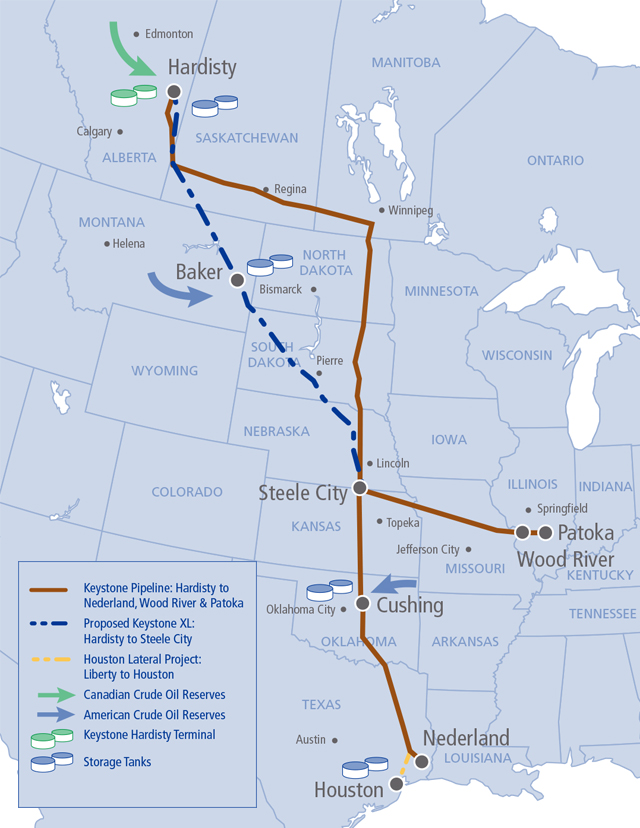The Obama Administration has (finally) rejected the Keystone XL pipeline proposal, in a hollow victory for environmentalists who’ve staged this as a key battle in preventing climate catastrophe. While this is an important victory, other news from today’s news feed demonstrates that the oil companies plan to simply take the Alberta Tar Sands oil to market via other routes.
Last week the company which made the proposal, TransCanada, asked that their proposal be shelved. The widespread interpretation of that request is that TransCanada foresaw that the Obama Administration would reject the proposal, and that by shelving the proposal TransCanada could reinstate the proposal in a couple years. For example, a fossil-fuel-friendly-Republican might be in power following the 2016 election cycle.
Environmental groups called on the Obama Administration to go ahead and reject the Keystone XL proposal. The Rain Forest Action Network said “Regardless of its precise route through Nebraska, Obama has long had clear reason to reject this misguided project for its disastrous impact on the global climate and local communities. It is urgently important that President Obama reject Keystone XL without further delay. KXL isn’t about TransCanada. It’s about the president’s climate legacy.” Bill McKibben of 350.org said: “They’re clearly pursuing a gambit—knowing they’ve lost, they’re trying to ask for some extra innings from the umpire, on the theory that they’ll re-submit a new route for the pipeline after the next election…. [Obama] should finally break his silence on Keystone and say the most important thing: it fails the climate test that he laid out. It will help cook the planet. It’s a bad idea no matter what route it takes, because it’s a fuse to one of the planet’s nastiest carbon bombs.”
Now the Obama Administration has done so, while definitively tying the decision to the urgent need for action on climate change. This sure sounds like a definitive and huge victory. Why am I saying this is a hollow victory? We’ll get to that, we first have to go over various statements.
Reactions from environmental groups to Keystone XL rejection
Those same groups are gleefully claiming victory today. But, as we’ll get to in a minute, we should see this as a hollow victory.
The Environmental Defense Fund said “This is an inspiring moment that demonstrates the amazing power of grassroots advocacy. A broad coalition of environmental activists stood together over many years with determination and resolve—and we won.” The NRDC said “The decision to reject Keystone XL sets a powerful precedent for America’s clean energy future — which is especially critical as President Obama prepares for the international climate change talks in Paris in December. It’s more proof that we’ve reached the limit of feeding our fossil fuel addiction. That means keeping up the pressure to reject any fossil fuel project that endangers our communities and makes climate change worse.”
Calling it “huge”, Bill McKibben wrote that “A head of state has never rejected a major fossil fuel project because of its climate impacts before. The President’s decision sets the standard for what climate action looks like: standing up to the fossil fuel industry, and keeping fossil fuels in the ground.” He went on to point to other fossil fuel developments that also need to be stopped: “Resistance is growing because the fossil fuel industry is more reckless than ever: from Texas where the Southern leg of Keystone XL pumps toxic tar sands, to Alberta where Big Oil foolishly plans to expand its mines, to California where they want to frack during a historic drought, to the enormous coal pits of Appalachia and Australia.”
Secretary Kerry’s explanation for rejecting Keystone XL
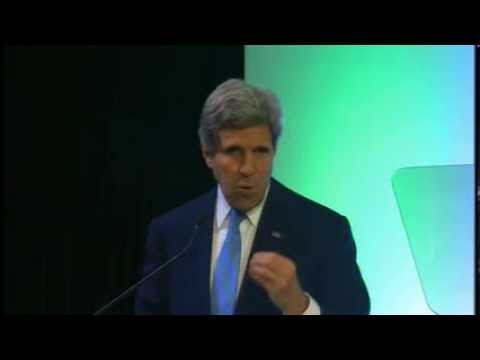 “Executive Order 13337 delegates to the Secretary of State the President’s authority to issue or deny Presidential Permits like the one sought for the proposed Keystone XL pipeline.” That legalese sentence is in the middle of the press release explaining the reasons by which the Keystone XL pipeline proposal has been rejected
“Executive Order 13337 delegates to the Secretary of State the President’s authority to issue or deny Presidential Permits like the one sought for the proposed Keystone XL pipeline.” That legalese sentence is in the middle of the press release explaining the reasons by which the Keystone XL pipeline proposal has been rejected![]() .
.
Kerry cited these key findings of the State Department review of the proposal:
- The proposed project has a negligible impact on our energy security.
- The proposed project would not lead to lower gas prices for American consumers.
- The proposed project’s long-term contribution to our economy would be marginal.
- The proposed project raises a range of concerns about the impact on local communities, water supplies, and cultural heritage sites.
- The proposed project would facilitate transportation into our country of a particularly dirty source of fuel.
We’ve known all this for a long time. For example, the pipeline proposal sent the tar sands oil to refineries along the Gulf Coast, in a zone which looked like the plan was to then export the oil to other countries. Hence, this oil wasn’t destined for use in the U.S. and/or Canada economies but was destined for other economies. But it would be the U.S. which would bear the environmental cost of any pipeline breakages or leaks. And, TransCanada does have a history of pipeline breakages.
Kerry then said: “The critical factor in my determination was this: moving forward with this project would significantly undermine our ability to continue leading the world in combatting climate change.” And that “it would facilitate the transportation to the United States of one of the dirtiest sources of fuel on the planet.”
And, this is exactly the sort of strategic thinking we need in our government leaders:
The United States needs to prioritize the development of renewable energy opportunities and continue to transition to the kind of jobs that better utilize our skilled manufacturing base. Clean energy is not just the solution to climate change; it’s also one of the greatest economic opportunities the world has ever seen. If we continue to make smart choices, American businesses – and American workers – stand to benefit enormously.
And that
Decades of science prove beyond any reasonable doubt that human activity is a direct cause of the rising seas, increasing temperatures, and intensifying storms threatening our planet – and the window of opportunity for action to prevent the worst impacts of climate change is closing quickly. I have seen the world try and fail to address this threat for decades. Today, the need for American leadership to combat climate change has never been greater, and we must answer the call.
Too bad that Secretary Kerry has worked to export Fracking technology into Ukraine and other countries around the world. Too bad that President Obama has spent lots of speech time bragging about how much oil has been produced during his presidency. While I applaud their statements today, we have to remember what their actual actions have been during their time holding the reins of power.
President Obama’s statement on rejecting Keystone XL
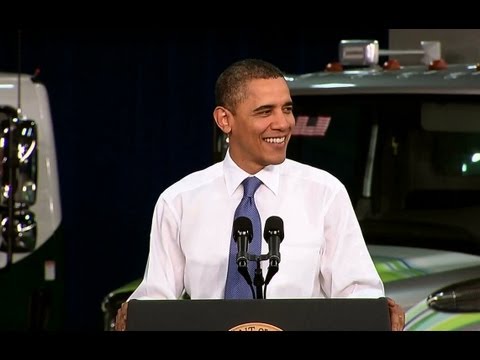 Obama’s press release
Obama’s press release![]() echo’d Kerry’s with the nice things it says about strategic plans to shift to renewable energy systems. It also explained some things rationalizing a short term imperative behind fracking for domestic oil and natural gas.
echo’d Kerry’s with the nice things it says about strategic plans to shift to renewable energy systems. It also explained some things rationalizing a short term imperative behind fracking for domestic oil and natural gas.
What has increased America’s energy security is our strategy over the past several years to reduce our reliance on dirty fossil fuels from unstable parts of the world. Three years ago, I set a goal to cut our oil imports in half by 2020. Between producing more oil here at home, and using less oil throughout our economy, we met that goal last year — five years early. In fact, for the first time in two decades, the United States of America now produces more oil than we buy from other countries.
To explain … This means the U.S. is shipping less of its money supply to foreign economies so they’ll ship us oil. That means the U.S. economy is less destabilized than it would be if we’d kept with the pattern of ever-increasing dependence on foreign oil. The Obama Administration has caused a shift in U.S. energy policies, some of which will survive his time in office – such as increased fuel efficiency in both cars and big trucks.
Obama went on to say:
Now, the truth is, the United States will continue to rely on oil and gas as we transition — as we must transition — to a clean energy economy. That transition will take some time. But it’s also going more quickly than many anticipated. Think about it. Since I took office, we’ve doubled the distance our cars will go on a gallon of gas by 2025; tripled the power we generate from the wind; multiplied the power we generate from the sun 20 times over. Our biggest and most successful businesses are going all-in on clean energy. And thanks in part to the investments we’ve made, there are already parts of America where clean power from the wind or the sun is finally cheaper than dirtier, conventional power.
In other words – Obama is saying the U.S. needed to increase domestic oil production to give us a breather time while we focused on renewable clean energy technology development. Maybe I buy that.
Hollow victory?
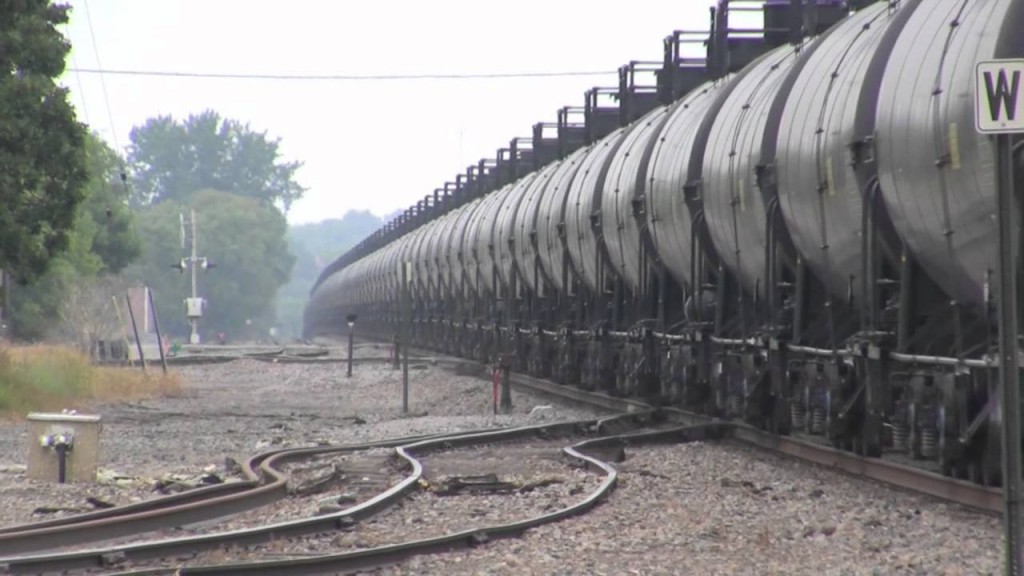 In the past I’ve noted Oil Industry plans to transport oil via means other than oil pipelines. The oil trains are one way oil is getting to market, as are oil barges in the Great Lakes or Mississippi River. All these methods are more dangerous than if the oil were shipped by pipeline.
In the past I’ve noted Oil Industry plans to transport oil via means other than oil pipelines. The oil trains are one way oil is getting to market, as are oil barges in the Great Lakes or Mississippi River. All these methods are more dangerous than if the oil were shipped by pipeline.
In today’s news the NRDC Switchboard blog carries a piece talking about another TransCanada proposal![]() . This one is a pipeline which would run across Canada, ending at a port somewhere along the St. Lawrence Seeway or perhaps further upstream, for shipping tar sands crude oil to other countries. These locations are environmentally sensitive habitats for the sort of sea-life common in the northern oceans. The Bay of Fundy for example is home to the worlds remaining 300-400 North Atlantic Right Whales.
. This one is a pipeline which would run across Canada, ending at a port somewhere along the St. Lawrence Seeway or perhaps further upstream, for shipping tar sands crude oil to other countries. These locations are environmentally sensitive habitats for the sort of sea-life common in the northern oceans. The Bay of Fundy for example is home to the worlds remaining 300-400 North Atlantic Right Whales.
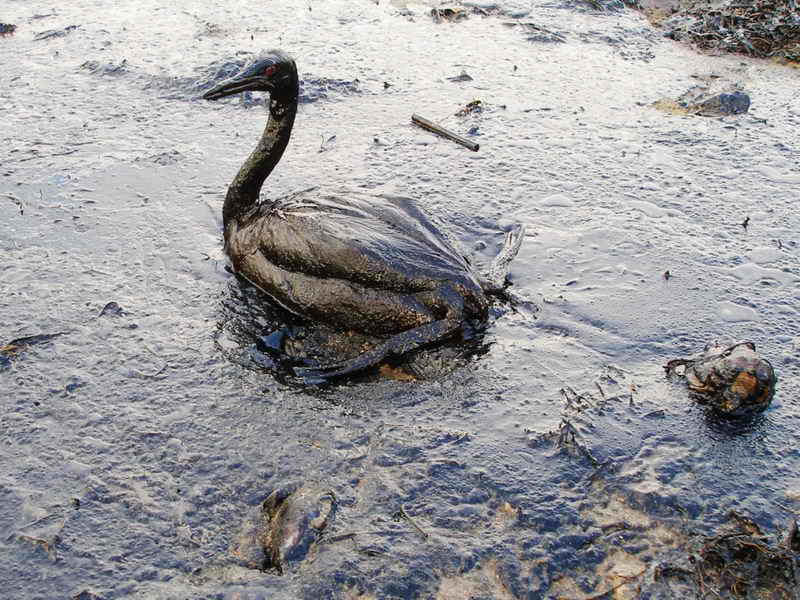 An oil spill in this area would wreak havoc. As I’ve noted elsewhere on LongTailPipe, crude oil is extremely toxic, full of carcinogens, and is death for sealife when it’s spilled.
An oil spill in this area would wreak havoc. As I’ve noted elsewhere on LongTailPipe, crude oil is extremely toxic, full of carcinogens, and is death for sealife when it’s spilled.
TransCanada plans that the proposed oil terminal would play host to over 290 oil tankers that would take crude oil to other markets around the world. Therefore, like the Keystone XL proposal, TransCanada isn’t proposing the oil would benefit Canada’s or the U.S. economies, but would be shipped elsewhere. And, of course, this oil pipeline and oil export terminal would do as much to facilitate consumption of Alberta tar sands oil as if it had been shipped to the Gulf Coast for export there.
Stop buying oil products to Eliminate the economic incentive to sell oil
In other words – crude oil has economic value in our current system. The oil companies are incentivized with money to keep supplying crude oil, no matter what it does to the environment and climate.
TransCanada’s role in this is to look for outlets through which to ship Aberta tar sands oil to market. Their search for oil revenues mean they’ll keep trying any available route to do so. So long as this economic incentive to sell crude oil exists, that is.
What needs to stop is the economic incentive – we need to stop buying oil products, and therefore cut off the air supply of the oil companies.
- Is there enough Grid Capacity for Hydrogen Fuel Cell or Battery Electric cars? - April 23, 2023
- Is Tesla finagling to grab federal NEVI dollars for Supercharger network? - November 15, 2022
- Tesla announces the North American Charging Standard charging connector - November 11, 2022
- Lightning Motorcycles adopts Silicon battery, 5 minute charge time gives 135 miles range - November 9, 2022
- Tesla Autopilot under US Dept of Transportation scrutiny - June 13, 2022
- Spectacular CNG bus fire misrepresented as EV bus fire - April 21, 2022
- Moldova, Ukraine, Georgia, Russia, and the European Energy Crisis - December 21, 2021
- Li-Bridge leading the USA across lithium battery chasm - October 29, 2021
- USA increasing domestic lithium battery research and manufacturing - October 28, 2021
- Electrify America building USA/Canada-wide EV charging network - October 27, 2021




